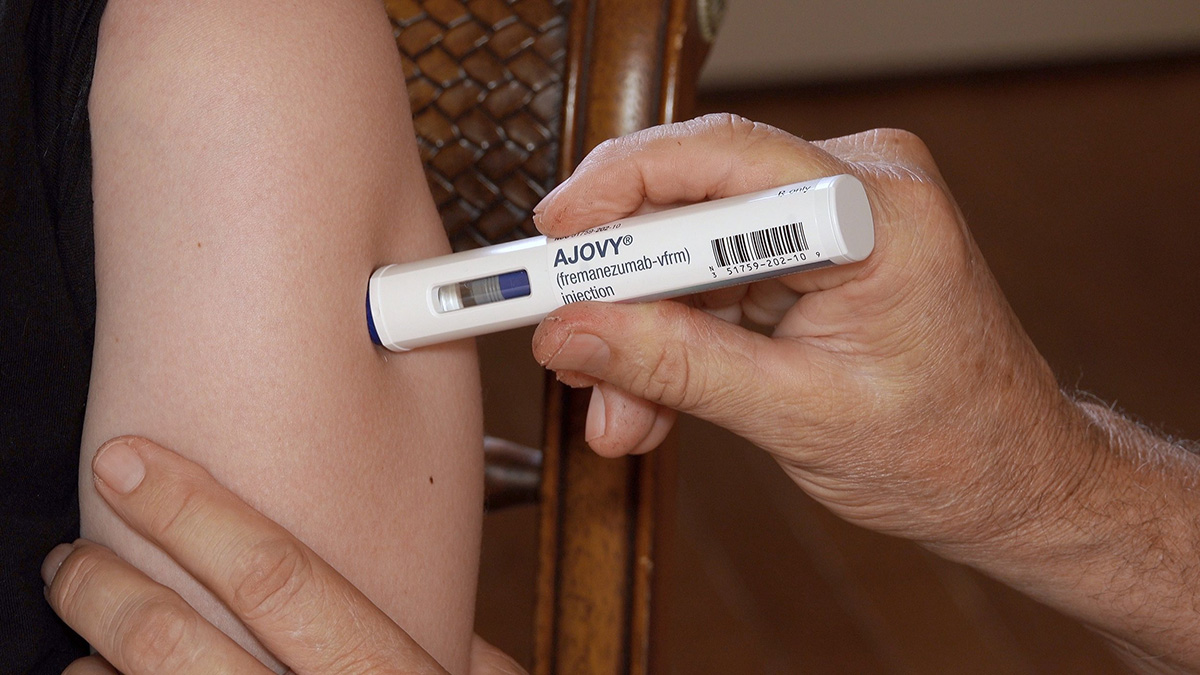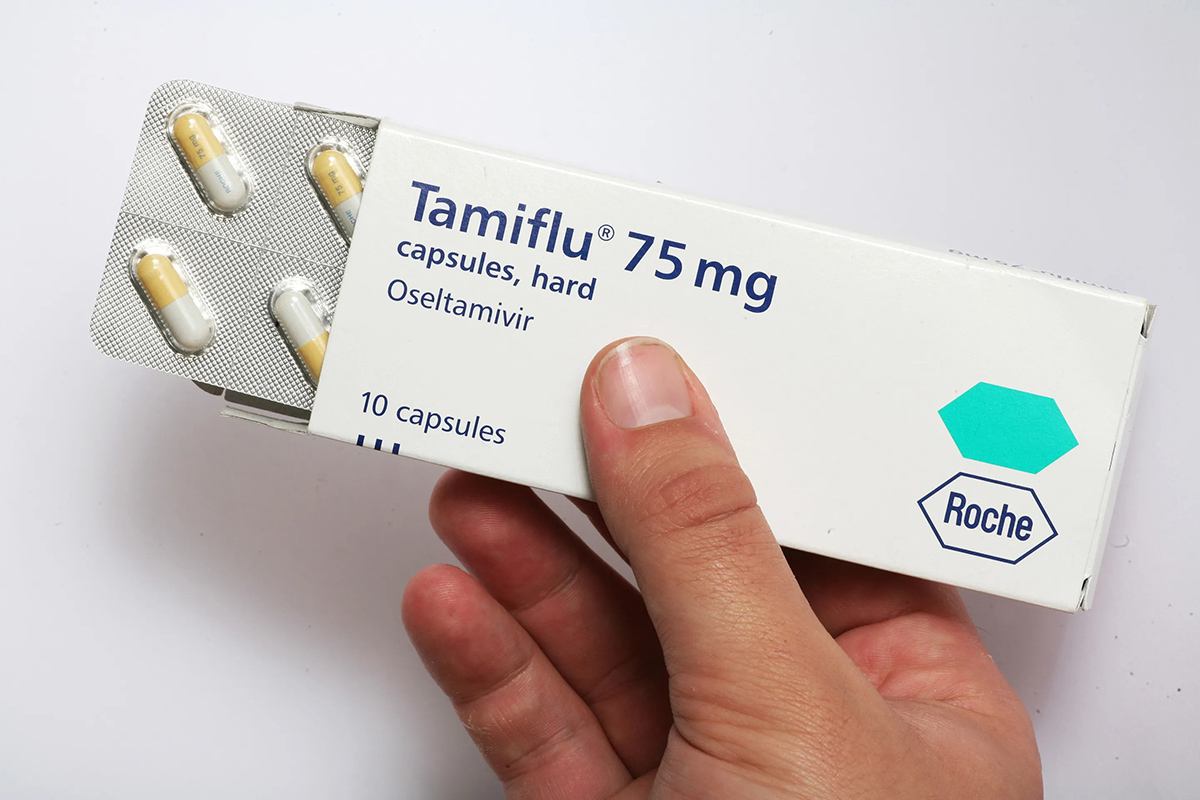

Finance
How Much Is A Heart Transplant With Insurance?
Published: November 8, 2023
Learn about the cost of heart transplant with insurance and explore financing options. Take control of your finances with expert advice on healthcare expenses.
(Many of the links in this article redirect to a specific reviewed product. Your purchase of these products through affiliate links helps to generate commission for LiveWell, at no extra cost. Learn more)
Table of Contents
Introduction
A heart transplant is a life-saving procedure that can significantly improve the quality of life for individuals with end-stage heart failure. It involves replacing a diseased or damaged heart with a healthy heart from a deceased donor.
While this procedure offers hope for many patients, it also comes with a considerable financial burden. The cost of a heart transplant can be exorbitant, often reaching six figures or more. However, the exact cost can vary depending on several factors.
In this article, we will delve into the cost of a heart transplant with insurance coverage. We will explore the factors that influence the overall cost, the role of insurance in covering these expenses, and how individuals can navigate the financial aspects of this life-saving procedure.
Whether you are a patient considering a heart transplant, a loved one supporting someone through the process, or simply curious about the financial implications of this procedure, this article aims to provide a comprehensive understanding of the costs involved and shed light on the potential avenues for financial assistance.
Understanding Heart Transplants
A heart transplant is a complex surgical procedure that involves replacing a failing or diseased heart with a healthy heart from a donor. It is typically recommended for individuals with advanced heart failure or other severe heart conditions that cannot be effectively treated through medication or other interventions.
During a heart transplant, the recipient’s own heart is removed, and the donor heart is carefully transplanted into the chest. The new heart is then connected to the recipient’s blood vessels and surrounding structures, ensuring proper blood flow and function.
Heart transplants can significantly improve a patient’s quality of life and increase their life expectancy. However, it is important to note that the procedure is not without risks. The body’s immune system may see the transplanted heart as a foreign object and mount an immune response, leading to organ rejection. To prevent rejection, recipients must take immunosuppressive medications for the rest of their lives.
Heart transplants are not performed on every patient with heart failure. The decision to undergo a heart transplant is made by a multidisciplinary team, including cardiologists, cardiac surgeons, and transplant specialists. They carefully evaluate each patient’s medical history, overall health, and eligibility for transplantation.
It is also essential to understand that a heart transplant is not a cure for heart disease. While it can improve a patient’s quality of life and extend their lifespan, it does not address the underlying causes of heart failure. Lifestyle changes, ongoing medical care, and adherence to medication regimens are crucial to maintaining the health of the transplanted heart.
Heart transplants are life-altering procedures that require a collaborative effort from the medical team, the patient, and their support network. Understanding the intricacies of the procedure, its benefits, and potential risks is crucial for individuals considering or undergoing a heart transplant.
The Cost of a Heart Transplant
The cost of a heart transplant in the United States can be staggering, often exceeding hundreds of thousands of dollars. The exact cost varies depending on several factors, including the hospital and location, the complexity of the procedure, the length of hospital stay, and associated medical services.
The average cost of a heart transplant typically ranges between $750,000 to over $1.5 million. This includes pre-transplant evaluations, the surgical procedure itself, post-operative care, immunosuppressive medications, follow-up examinations, and potential complications.
Breaking down the cost components, the initial evaluation and medical tests before the transplant can cost around $20,000 to $30,000. The transplant surgery itself can range from $500,000 to over $1 million. The post-operative care, which includes monitoring, medications, and rehabilitation, can add significant expenses. Additionally, the need for ongoing immunosuppressive medications can cost an average of $3,000 to $5,000 per month.
It’s important to mention that these costs are based on the average figures and can vary widely. Factors such as the complexity of the surgery and the length of hospital stay can significantly impact the overall cost. Complications during or after the surgery can also increase the expenses.
Medical institutions that perform heart transplants may offer bundled packages that cover a set duration of post-transplant care. These packages can provide some cost predictability for patients and help with financial planning. However, it’s crucial to carefully review these packages and understand what is included and what additional costs may arise.
When considering the high cost of heart transplantation, it is understandable that many individuals may have concerns about financial feasibility. That’s where insurance coverage plays a significant role in managing these expenses.
Factors Affecting the Cost
Several factors influence the cost of a heart transplant, making it a highly individualized and complex procedure. Understanding these factors can help individuals better comprehend the financial implications and plan accordingly.
1. Hospital and Location: The choice of hospital and its location significantly impacts the cost. Prestigious and specialized medical centers often have higher fees due to their expertise and comprehensive services. Additionally, location plays a role as healthcare costs can vary from region to region.
2. Surgical Team and Expertise: The experience and reputation of the surgical team can influence the cost. Highly skilled surgeons and medical professionals may charge more for their services.
3. Length of Hospital Stay: The duration of hospitalization post-transplant can contribute to the overall cost. Complications or underlying health conditions may require an extended stay, leading to higher expenses.
4. Pre-Transplant Evaluations: Before undergoing a heart transplant, thorough medical evaluations are necessary to determine if an individual is a suitable candidate. These evaluations include tests, imaging, and consultations with specialists, adding to the overall cost.
5. Post-Transplant Medications and Care: After a heart transplant, lifelong anti-rejection medications (immunosuppressants) are necessary. These medications can be expensive, and their costs need to be considered in the overall financial picture. Ongoing follow-up appointments, tests, and rehabilitation services also contribute to post-transplant care expenses.
6. Complications and Additional Treatments: Complications that arise during or after the transplant, such as infections or organ rejection, can significantly increase medical costs. Additional treatments, procedures, or hospital readmissions may be required, impacting the overall financial burden.
It’s important to note that these factors are not exhaustive and may vary from case to case. Each individual’s medical situation is unique, and the costs associated with a heart transplant can be influenced by additional factors specific to their condition.
Understanding the various factors affecting the cost of a heart transplant is crucial for individuals and their families to plan and navigate the financial aspects of the procedure effectively. It is also vital to explore the role of insurance in covering these expenses, which will be discussed in the following section.
The Role of Insurance in Covering Heart Transplants
Insurance coverage plays a vital role in managing the overwhelming cost of a heart transplant. Understanding your insurance policy and its provisions is crucial before undergoing this life-saving procedure.
Most insurance plans, including private health insurance and Medicare, provide coverage for heart transplants. However, it is important to review the specific terms and conditions of your policy to understand what is covered and what expenses you may be responsible for.
Insurance coverage typically includes the evaluation process, hospitalization for the transplant surgery, medication costs, and follow-up care. The coverage percentage and out-of-pocket expenses, such as deductibles and copayments, will vary depending on the insurance plan.
When considering insurance coverage, it’s crucial to consider:
- Network Restrictions: Check if the hospital or transplant center where you plan to undergo the procedure is within your insurance network. Out-of-network care can result in higher out-of-pocket costs.
- Prior Authorization: Some insurance plans require prior authorization for a heart transplant. Make sure to comply with the necessary procedures to ensure coverage.
- Lifetime Benefit Limits: Familiarize yourself with any lifetime benefit limits that may apply. Insurance plans may have a maximum coverage amount for transplant-related expenses.
- Prescription Medication Coverage: Confirm that your insurance plan covers the immunosuppressive medications necessary after a heart transplant. Some plans may have restrictions or require step therapy.
If you are covered by Medicare, it generally provides coverage for heart transplants, including pre-transplant assessments, the transplant surgery, necessary medications, and post-transplant care. However, Medicare may require certain criteria to be met, such as evaluation by a Medicare-approved transplant center.
If you have private health insurance, it is advisable to contact your insurance provider to discuss the specifics of your coverage and any potential limitations or requirements. Additionally, it may be helpful to consult with a transplant financial coordinator or hospital social worker who can provide guidance on navigating insurance coverage and financial assistance options.
It is essential to thoroughly understand the details of your insurance coverage and work closely with your healthcare team to ensure you receive the necessary care while minimizing financial stress.
In the next section, we will delve into how to determine the cost of a heart transplant with insurance and the potential out-of-pocket expenses.
Determining the Cost with Insurance
Determining the cost of a heart transplant with insurance can be a complex process, as it involves considering various factors, including insurance coverage, deductibles, coinsurance, and out-of-pocket maximums.
Here are some important factors to consider when determining the cost of a heart transplant with insurance:
1. Insurance Coverage: Review your insurance policy to understand what is covered and the percentage of coverage provided. Some insurance plans may cover a significant portion of the transplant expenses, while others may have more limited coverage.
2. Deductibles: Determine whether your insurance plan has a deductible, which is the amount you need to pay out-of-pocket before your insurance coverage begins. The transplant expenses will count towards meeting your deductible.
3. Coinsurance: After meeting your deductible, you may still be responsible for a percentage of the costs. This is known as coinsurance. For example, if your insurance plan covers 80% of transplant-related expenses and you are responsible for 20% coinsurance, you will pay 20% of the eligible costs.
4. Out-of-Pocket Maximum: Every insurance plan has an out-of-pocket maximum, which is the maximum amount you are required to pay in a given year. Once you reach this limit, your insurance will cover 100% of the eligible expenses for the remaining year.
5. Network Restrictions: Confirm if the hospital and transplant center you choose are within your insurance network. Out-of-network care may result in higher out-of-pocket costs or may not be covered at all.
It is important to note that insurance coverage and costs can vary significantly depending on your specific policy. It is recommended to contact your insurance provider directly to discuss the details of your coverage, any limitations, and the estimated costs associated with a heart transplant.
Additionally, working closely with a transplant financial coordinator or an experienced hospital social worker can be tremendously helpful in navigating the insurance process. They can provide guidance on estimating costs, understanding your benefits, and exploring potential financial assistance options.
Now that we have explored the process of determining the cost of a heart transplant with insurance, the next section will discuss potential out-of-pocket costs that individuals may encounter.
Out-of-Pocket Costs
While insurance coverage is designed to help manage the cost of a heart transplant, there are still potential out-of-pocket expenses that individuals may encounter. These costs can vary depending on insurance plans, policy provisions, and individual circumstances.
Here are some common out-of-pocket costs to consider:
1. Deductibles: If your insurance plan has a deductible, you will need to pay this amount out-of-pocket before your coverage begins. Deductibles can range from a few hundred to several thousand dollars.
2. Coinsurance: After meeting your deductible, you may still be responsible for a percentage of the costs through coinsurance. For example, if your plan has a coinsurance of 20%, you would be responsible for paying 20% of the eligible expenses, while the insurance covers the remaining 80%.
3. Copayments: Some insurance plans have copayments, which are fixed amounts that you need to pay for specific services or medications. These can include copayments for doctors’ visits, prescription medications, or rehabilitative services.
4. Out-of-Network Costs: If you choose to receive care from a hospital or physician outside of your insurance network, you may be responsible for higher out-of-pocket costs. It’s important to check whether the transplant center and medical professionals you choose are within your network.
5. Travel and Lodging Expenses: Depending on the location of your transplant center, you may need to travel and stay near the hospital before and after the procedure. These expenses, including transportation, accommodation, and meals, are typically not covered by insurance.
6. Rehabilitation and Follow-up Care: Rehabilitation and follow-up care, including physical therapy, occupational therapy, and ongoing medical visits, may require additional out-of-pocket expenses depending on your insurance coverage.
It’s essential to review your insurance policy carefully and understand the potential out-of-pocket costs associated with a heart transplant. Planning ahead and exploring financial assistance options can help alleviate the burden of these expenses.
In the following section, we will discuss some potential financial assistance options that individuals may consider to help manage the overall cost of a heart transplant.
Financial Assistance Options
Managing the financial burden of a heart transplant can be challenging. Fortunately, there are several financial assistance options available to help individuals navigate the costs associated with the procedure. Here are some potential avenues to explore:
1. Insurance Navigator or Transplant Financial Coordinator: These professionals can provide guidance and support in understanding insurance coverage, navigating the claims process, and exploring financial assistance options. They are experienced in working with individuals undergoing transplants and can provide valuable insight and resources.
2. Patient Assistance Programs: Many pharmaceutical companies offer patient assistance programs that can help cover the cost of immunosuppressive medications. These programs are designed to support individuals who cannot afford their medications, providing free or discounted prescriptions.
3. Government Assistance Programs: Individuals who meet certain eligibility criteria may qualify for government assistance programs such as Medicaid or Supplemental Security Income (SSI). These programs can provide financial support for healthcare expenses, including heart transplants.
4. Nonprofit Organizations and Foundations: There are various nonprofit organizations and foundations dedicated to providing financial assistance and support to individuals in need of a heart transplant. These organizations can help with fundraising campaigns, grant applications, and connecting with other resources.
5. Medical Tourism: In some cases, individuals may choose to pursue a heart transplant in countries where the cost of the procedure is lower. However, it is important to thoroughly research and consider the potential risks, including differences in medical standards and potential challenges with insurance coverage.
6. Hospital Financial Aid Programs: Many hospitals have financial aid programs or offer discounted services based on a patient’s income and financial need. These programs can help alleviate some of the financial burden associated with a heart transplant.
It’s important to start exploring these financial assistance options early in the transplant process. Each option may have specific eligibility criteria and application processes that need to be followed. Working closely with a transplant financial coordinator or social worker can provide guidance and support in accessing the available resources.
Remember, it’s essential to proactively communicate with your healthcare team, insurance provider, and financial assistance organizations to ensure you are accessing all the available resources to manage the costs associated with a heart transplant.
Lastly, it’s vital to seek emotional support from friends, family, and support groups throughout the transplant journey. The financial burden can be overwhelming, but with the right support systems in place, individuals can focus on their well-being and recovery.
Conclusion
Undergoing a heart transplant is a life-changing procedure that comes with significant financial implications. The cost of a heart transplant can be overwhelming, but understanding the factors that influence the cost and exploring insurance coverage options are essential steps in managing the financial aspect of the procedure.
Insurance coverage plays a pivotal role in covering the expenses associated with a heart transplant. By familiarizing yourself with your insurance policy, understanding the terms and conditions, and working closely with your healthcare team and transplant financial coordinator, you can gain a clearer understanding of what is covered and what potential out-of-pocket expenses you may encounter.
Exploring financial assistance options is also crucial in alleviating the financial burden. Patient assistance programs, nonprofit organizations, and government assistance programs can provide valuable support in covering the cost of immunosuppressive medications and other transplant-related expenses.
Throughout the transplant journey, it’s important to maintain open communication with your healthcare team, insurance provider, and financial assistance organizations. Seeking emotional support from loved ones and support groups can also help in dealing with the financial and emotional challenges that may arise.
Remember that each individual’s situation is unique, and costs can vary. It’s advisable to consult with professionals experienced in transplant financial matters to guide you through the process and help you access the available resources.
While the cost of a heart transplant may seem daunting, it’s important to focus on the potential positive outcomes and improvements to quality of life that can be achieved through the procedure. With careful planning and exploration of financial assistance options, individuals can approach the heart transplant journey with greater peace of mind and the best chance of a successful outcome.














